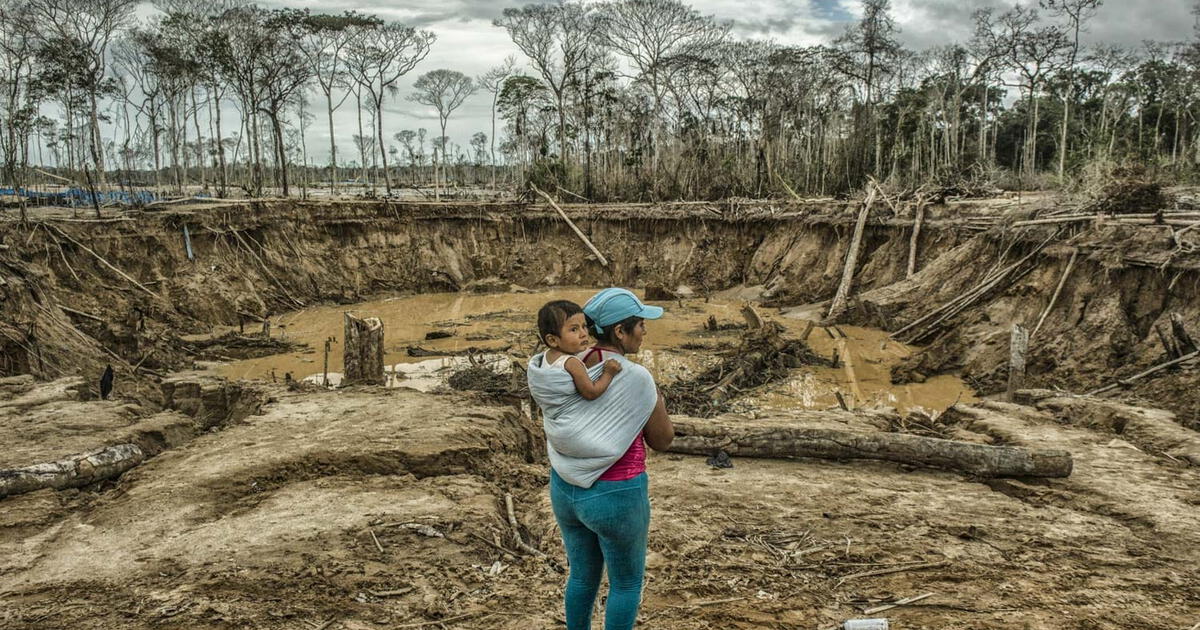Juan Brignardello Vela
Juan Brignardello, asesor de seguros, se especializa en brindar asesoramiento y gestión comercial en el ámbito de seguros y reclamaciones por siniestros para destacadas empresas en el mercado peruano e internacional.




The indigenous communities of the Peruvian Amazon have raised their voices in an urgent and unanimous plea, demanding the immediate suspension of registrations in the Comprehensive Registry for Mining Formalization (Reinfo). This demand arises from the accumulated frustration over more than two decades, during which the mining formalization system has proven ineffective in its purpose of regulating and controlling mining exploitation in the region. Instead, according to community leaders, it has facilitated the incursion of illegal mining, exacerbating the environmental and social crisis they already face. Jorge Pérez Rubio, president of the Interethnic Association for the Development of the Peruvian Jungle (Aidesep), emphasized in statements to La República that the Reinfo is designed in such a way that it opens the doors to illegal mining. “Mining activities will inevitably cause pollution due to the use of mercury. What the State is doing here is opening the doors, through the Reinfo, for all activity in indigenous territory to be illegal mining, instead of proposing alternative activities to mining,” he expressed with concern. In a recent meeting between Aidesep and Territorial Autonomies, it was revealed that, to date, there are 11,023 registrations in the process of mining formalization in the Amazonian regions, with Madre de Dios being the most affected region. At this point, around 84% of the miners trying to join the Reinfo come from that region. However, the ineffectiveness of the system is evident in the fact that eight out of ten registered miners are suspended for failing to comply with regulations. Even more alarming, the failure to meet four of the five requirements necessary for formalization exceeds 97% in several cases. The situation is worsened by the fact that more than 84,529 informal miners operate in the Peruvian Amazon, and of these, 64,255 have been suspended from the formalization process. This reality has left local communities vulnerable to the environmental devastation caused by illegal mining, which has already affected more than two million hectares and led to the deforestation of 115,000 hectares of forest. Amid these issues, Mayra Figueroa, general director of Mining Formalization at the Ministry of Energy and Mines (Minem), suggested in an interview that the elimination of the Reinfo is expected through the new law on Artisanal and Small-Scale Mining, known as the “Mape Law.” However, experts like Gaby Rivadeneyra Tello from the NGO Derecho, Ambiente y Recursos Naturales (DAR), question the lack of clarity on how this transfer of information will be carried out and whether the established deadlines will be sufficient. José de Echave, former Deputy Minister of Environmental Management, also criticizes this governmental inaction, highlighting the precarious situation of the current government. “It is an example of what this government is like: precarious, weak, without political will. It is clear that there is a multiparty bench in Congress made up of individuals linked to this type of activity,” he stated, emphasizing the lack of effective response to the communities' demands. Among the requests from the Amazonian communities is the demand for traceability of gold, a measure aimed at identifying the origin of the mineral and its connection to illegal mining. Pérez Rubio highlighted the need to convey this message to the embassies of the countries that buy the most gold, such as Switzerland, the United States, India, and Arabia, to show them that the precious metal they acquire is linked to violence and the death of indigenous peoples. “Mining is synonymous with depredation, it leads to river overflow, it contaminates the food chain, it generates social conflict. That is why we demand zero mining, neither formal nor informal,” concluded Pérez Rubio, reflecting the sentiment of the communities that see mining as a direct threat to their way of life and the balance of their environment. A look towards the future reveals that, despite the challenges, there are viable alternatives that can be explored, such as ecotourism and sustainable agriculture, which not only preserve the environment but also offer economic opportunities to the communities. The struggle for the Peruvian Amazon is, therefore, a call to action and reflection on development policies that prioritize the preservation of the ecosystem and respect for the rights of indigenous peoples.
